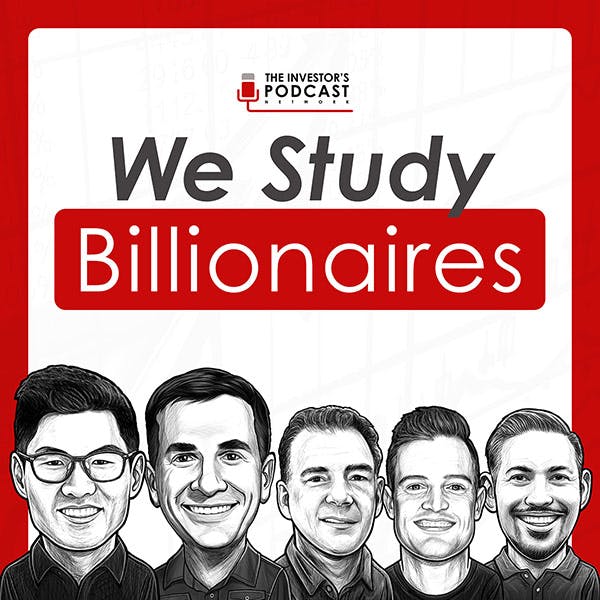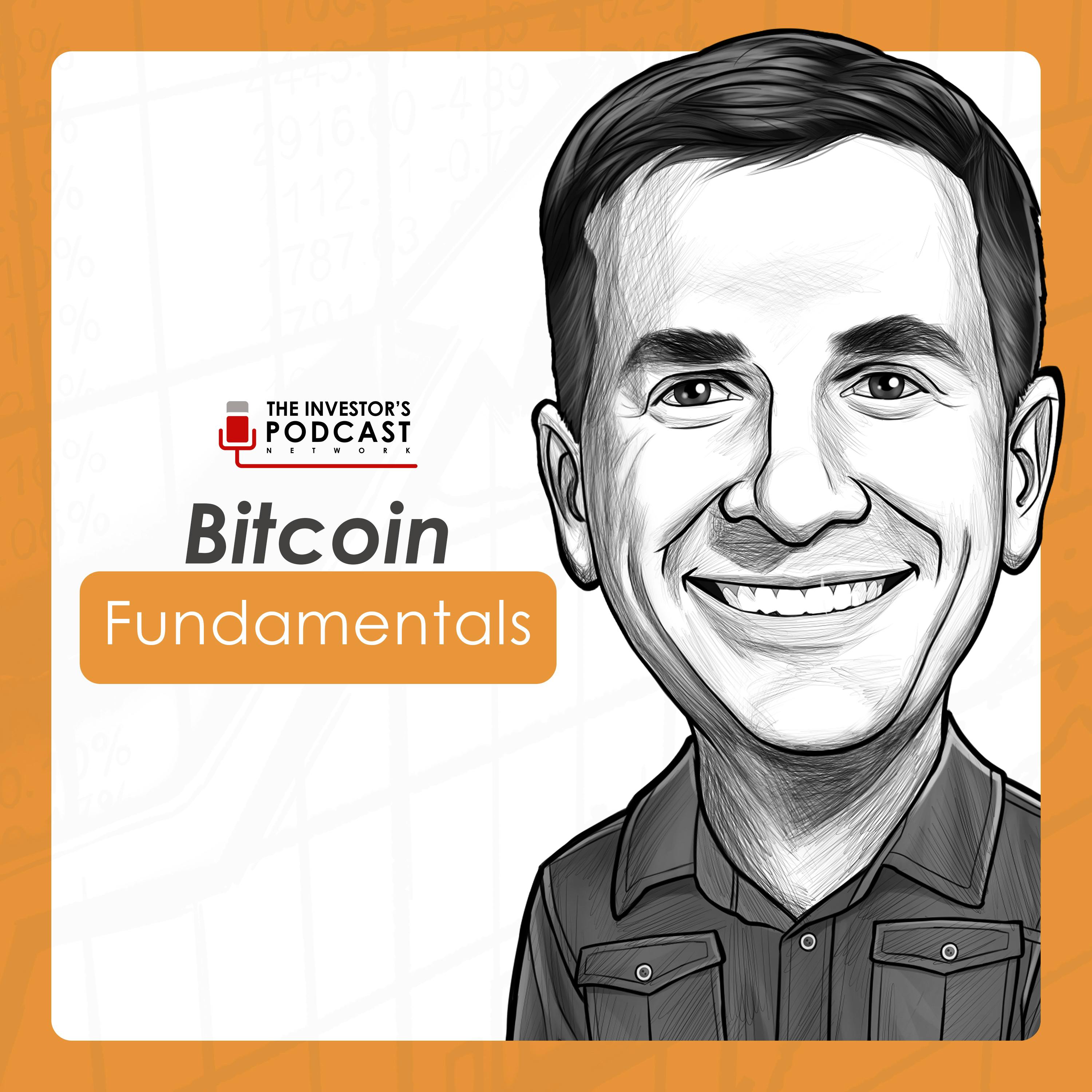
October 4, 2024 • 1hr 26min
TIP665: The Most Important Thing by Howard Marks w/ Clay Finck & Kyle Grieve
We Study Billionaires - The Investor’s Podcast Network

Key Takeaways
- Second-level thinking is essential for successful investing - it involves considering your view and comparing it to the view of others, often expressed through market prices
- The efficient market hypothesis has some merit, but markets are not always efficient, creating opportunities for skilled investors
- Understanding and managing risk is critical - risk is not just volatility, but the likelihood of permanent capital loss
- Market cycles provide a framework for assessing current conditions and potential opportunities, but should not be used as a predictive tool
- Luck plays a significant role in short-term results, but skill becomes more apparent over longer time periods (10+ years)
- Finding bargains requires looking for situations where perception is worse than reality
- Patient opportunism - waiting for the right opportunities to deploy capital aggressively - can lead to superior long-term results
Introduction
In this episode, hosts Clay Finck and Kyle Grieve discuss key insights from Howard Marks' book "The Most Important Thing". Howard Marks is the co-founder of Oaktree Capital, which manages over $190 billion in assets. The book covers fundamental concepts in investing, including second-level thinking, market efficiency, risk management, market cycles, the role of luck, finding bargains, and patient opportunism.
Topics Discussed
Second-Level Thinking (5:12)
Second-level thinking is crucial for outperforming the market. It involves going beyond surface-level analysis to consider how your view differs from the consensus.
- First-level thinking: "This is a good company, therefore it's a good investment."
- Second-level thinking: "This is a good company, but it's overpriced, therefore it's a poor investment."
Kyle shares a personal example of failing to use second-level thinking with a stock that rose rapidly:
"My brain was telling me, okay, great, it's going up. But the business was still improving. And since the business was undervalued in the past, now is its time to shine. And so I saw the momentum and I believe the business would continue to go up. And this is just fundamental first level thinking. Huge error on my part."Market Efficiency (13:40)
The hosts discuss Marks' views on the efficient market hypothesis. While markets are often efficient, there are periods of significant mispricing that create opportunities for skilled investors.
Clay notes: "To some extent, the efficient market hypothesis does make sense because there's millions of investors. They all have access to instant information online and such. And many of these investors are very smart, very hard working, which Howard dives in deep into on his book."
However, examples like Yahoo's dramatic price swings in the early 2000s show markets are not always efficient.
Understanding Risk (18:26)
Marks emphasizes that risk is not just volatility, but the likelihood of permanent capital loss. The hosts discuss his key points on risk:
- Risk is bad, so trying to avoid it is smart
- Risk and return are intimately connected
- Any good investment requires assessing the risk involved
Kyle highlights an important quote from Marks: "Riskier investments absolutely cannot be counted on to deliver higher returns. Why not? It's simple. If riskier investments reliably produce higher returns, they wouldn't be riskier."
Recognizing Risk (28:25)
The hosts discuss how Marks uses market cycles as a framework for assessing risk levels. Kyle shares Marks' "Poor Man's Guide to Market Assessment" - a checklist to determine if it's time to be aggressive or defensive:
- Economy: Vibrant or sluggish?
- Outlook: Positive or negative?
- Capital flows: Plentiful or scarce?
- Interest rates: High or low?
- Investor sentiment: Optimistic/eager or pessimistic/uninterested?
- Recent asset performance: Strong or weak?
Clay notes: "When prices do get really elevated, the perception of the risk present is quite low, which coincidentally, makes it one of the riskiest times to invest."
Luck vs. Skill (50:31)
The hosts explore Marks' insights on differentiating between luck and skill in investing results:
- Short-term results (1-2 years) can be heavily influenced by luck
- Skill becomes more apparent over longer time periods (10+ years)
- Consider alternative histories - what else could have reasonably happened?
Clay shares an example from Nassim Taleb: "If you have 5 million people enter the world of investing, it really shouldn't come as a surprise that one of them would turn out like Warren Buffett."
Kyle adds: "The thing about luck is that, theoretically speaking, a monkey could throw a dart at a dartboard. And let's say that aligns with a certain stock. Let's say it was Nvidia in 2020. That was the only stock they bought. They probably would have done really, really well, but in reality, they just got lucky."
Finding Bargains (1:07:53)
The hosts discuss Marks' framework for finding underpriced assets:
- Unknown and misunderstood
- A little ugly on the surface
- Controversial, unseemly or scary
- Deemed inappropriate for respectable portfolios
- Unloved
- Owns a record of poor returns
- Higher selling pressure than buying pressure
Kyle summarizes: "I'd say the necessary condition for the existence of bargains is that the perception has to be considerably worse than reality. This is a fundamental notion for finding bargains. You must search for businesses where a gap exists between perception and reality."
Patient Opportunism (1:10:55)
The hosts explore Marks' concept of patient opportunism - waiting for the right opportunities to deploy capital aggressively. They discuss how investors like Warren Buffett and Pulak Prasad exemplify this approach.
Kyle shares an example from Pulak Prasad's book: "169 months passed between June 1, 2007 and June 30 of 2021. His fund Nalanda Capital invested a total of $1.86 billion during this period of time. Now, to the naked eye, this seems completely normal, but it is the times of concentrated capital deployment that are most important here. So Prasad points out in his book that 46% of the total capital deployed was invested in a 26 month period."
Clay adds: "Buffett has often said that one advantage of being a stock market investor is that we shouldn't feel the pressure to act. And it isn't like in baseball of course, where you get three strikes to put the ball in play. So you could look at 1000 pitches and investing before swinging if you really wanted to."
Conclusion
The hosts wrap up by emphasizing key lessons from "The Most Important Thing":
- Develop second-level thinking to gain an edge
- Understand that markets are not always efficient
- Focus on managing risk, not just chasing returns
- Use market cycles as a framework, not a predictive tool
- Recognize the role of luck, especially in short-term results
- Look for bargains where perception is worse than reality
- Practice patient opportunism - wait for fat pitches
They encourage listeners to read the book for deeper insights and to join the TIP Mastermind community for further discussion with like-minded investors.









